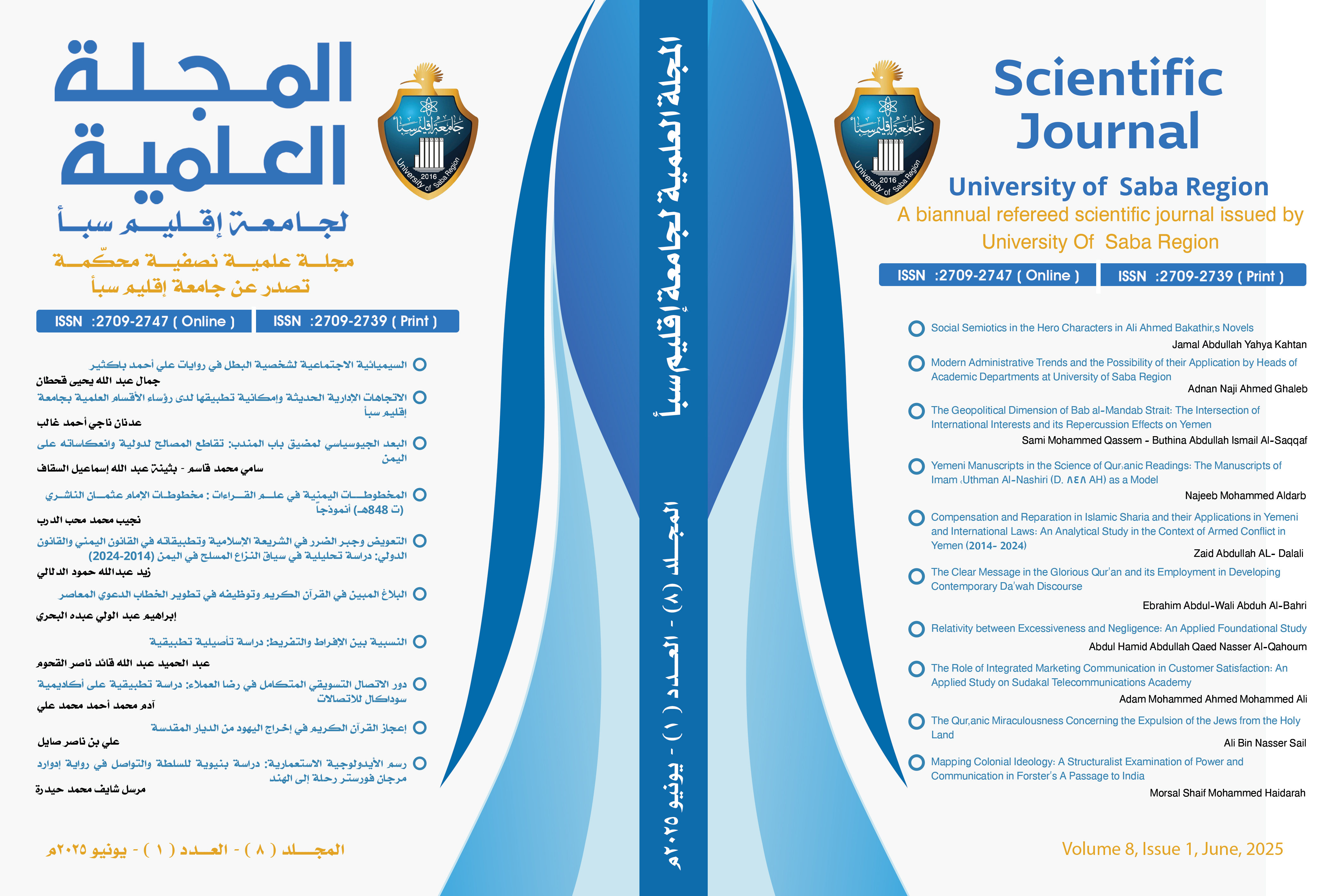Relativity between Excessiveness and Negligence: An Applied Foundational Study
DOI:
https://doi.org/10.54582/TSJ.2.2.115Keywords:
Relativity, Excessiveness, NegligenceAbstract
Excessiveness and negligence are two opposite extremes in understanding, complying with, and applying the Islamic legislative obligations. They are among the most severe afflictions that hit the essence of moderation; they lead a Muslim to be either overly strict or too lenient. They represent a significant threat to rulings and legislation, as their effects manifest in beliefs, behaviors, rituals, acts of worship, and transactions. Hence, the urgent need and public interest arise in identifying the points where a person may reach either of these extremes to safeguard against them or to recover if they slip into them, based on the principles of Islamic legislation and its objectives. The importance of this study springs out from the necessity to recognize the separating line between excessiveness and negligence, as both represent a deviation from the Islamic legislative method and a distance from its sublime objectives. The problem of the study lies in clarifying the concept of relativity and its legitimacy, detailing its degrees, the aspects of its transgressions, the Islamic legislative purposes behind its consideration, and its impact on the uprightness of the obligated individual and their adherence to the correct path. The study aims at establishing relativity as a fundamental principle of Islamic legislation, by gathering legal evidences, extracting conditions, and setting guidelines that clarify the objectives, and explaining how a Muslim can respond to the commands of Almighty Allah, through conducting a comprehensive legal study and applying it as much as possible to behavior, rituals, and legislation. This study uses a descriptive inductive approach to achieve its objectives, which involves collecting scientific material from various references, presenting its issues, and analyzing them. The study concludes that there is a necessity of addressing the extremes of excessiveness and negligence, understanding their impact on the individual and the community, and considering them a cause for losing balance in understanding and applying legal rulings, leading to the failure to achieve completion or acquittal despite the existence of performance. Furthermore, the study emphasizes the importance of adhering to the obligations assigned to Muslims without interpretation or suspension of Islamic legislative texts, unless one is among those qualified in ijtihad who are capable of deeply understanding the intricacies and secrets of the Sharia, and who base their ijtihad on balancing rulings and consequences.
Downloads
Published
How to Cite
Issue
Section
License
Copyright and Licensing
This journal publishes all scientific materials under the Creative Commons Attribution 4.0 International (CC BY 4.0) , license, which grants you the following permissions:
You are free to:
- Share — copy and redistribute the material in any medium or format for any purpose, even commercially.
- Adapt — remix, transform, and build upon the material for any purpose, even commercially.
- The licensor cannot revoke these freedoms as long as you follow the license terms.
Under the following terms:
- Attribution — You must give appropriate credit , provide a link to the license, and indicate if changes were made . You may do so in any reasonable manner, but not in any way that suggests the licensor endorses you or your use.
- No additional restrictions — You may not apply legal terms or technological measures that legally restrict others from doing anything the license permits.
Notices:
You do not have to comply with the license for elements of the material in the public domain or where your use is permitted by an applicable exception or limitation .
No warranties are given. The license may not give you all of the permissions necessary for your intended use. For example, other rights such as publicity, privacy, or moral rights may limit how you use the material.













